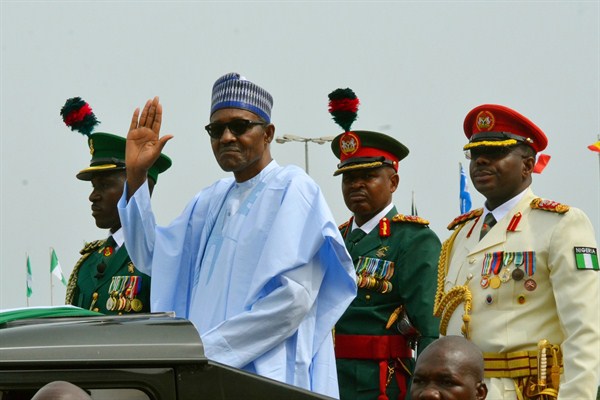Editor’s Note: Every Friday, WPR Senior Editor Robbie Corey-Boulet curates the top news and analysis from and about the African continent.
For much of this year, Nigerian President Muhammadu Buhari has tried to treat the Boko Haram insurgency and his upcoming re-election bid as two separate stories. As Obi Anyadike noted in an in-depth report for WPR last month, Buhari seemed to take his eye off the war in northeastern Nigeria, despite significant military setbacks, focusing instead on political jockeying in Abuja and elsewhere. One security analyst told Anyadike that the government’s priority was “regime security, not national security.”
In recent days, however, it’s become increasingly evident that regime security and national security may turn out to be one and the same. Brazen attacks by Boko Haram militants on Nigerian soldiers have fueled anger on the part of the public and military officials, forcing Buhari to scramble to defend his record. “This is a legitimate campaign issue,” Matthew Page, an associate fellow with the Africa Program at Chatham House, told Reuters recently. “The military strategy in the northeast has been failing. This type of failure to exert control over the national territory isn’t sustainable in the long run. It reflects really poorly on the incumbent president with the man on the street.”

